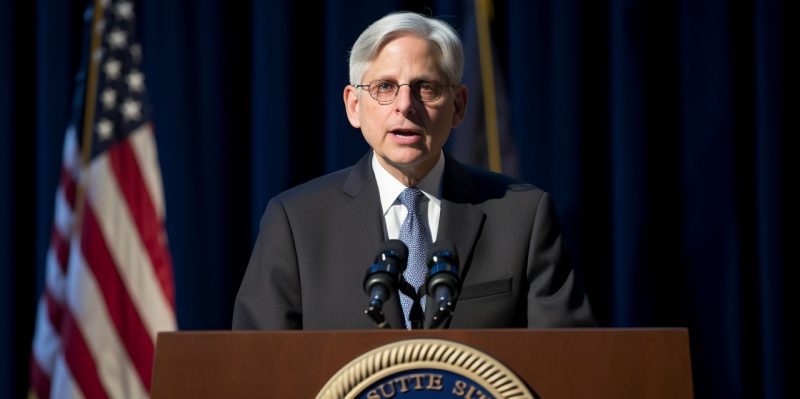
In a renewed and stark focus on the Justice Department’s continued investigation, Donald Trump’s federal indictment this month over classified documents has shed light on the question: Why has it taken so long to go after the ring leaders of the January 6th coup attempt?
For almost twelve months, speculation has run rampant among legal experts and former federal prosecutors, many publicly expressing doubts about whether Attorney General Merrick Garland and his team have exhibited sufficient alacrity in examining the incidents preceding the Capitol riot on January 6 and Trump’s potential involvement in related conspiracies to keep him in power.
A bombshell investigative report released by The Washington Post this week revealed that, for over a year, the FBI had held back from examining Trump’s part in the Jan. 6 events. The reluctance was reportedly due, in part, to a desire to maintain political neutrality. The Post also shed light on how top Justice Department officials had nipped in the bud an initial plan for a task force focusing on gathering intelligence about those close to Trump, and scrutinizing their – and his – involvement in any plot.
According to the Post’s findings, the slower pace of the investigation bore adverse effects, including the failure to conduct interviews with White House aides and other key individuals. With the passage of time, communications could be lost, deleted or memories simply faded, leaving gaps in the probe. Yet, when confronted, key officials at the Justice Department, FBI, and special counsel Jack Smith’s office declined to comment.
Concerns regarding the slow pace of the investigation are not new. Joyce White Vance, former U.S. Attorney for the Northern District of Alabama, highlighted that the inertia exhibited by the Justice Department and the FBI had been apparent to those in law enforcement and others keeping a close watch. She, along with Preet Bharara, the former U.S. attorney for the Southern District of New York, had repeatedly criticized the two entities for their lack of urgency through their podcast.
Vance underlined the potential pitfalls of this dawdling, namely the loss of fresh memories and the risk of evidence getting lost or deliberately hidden. She underscored the necessity of swift action when there is probable cause, known as ‘predication’, for investigation.
Long before Trump announced his 2024 presidential campaign, Garland had faced censure for the perceived sluggishness of the Jan. 6 investigation. In response, he appointed Jack Smith as special counsel to oversee the investigation, promising an “evenhanded and urgent” approach.
Smith made unprecedented strides by charging a former U.S. president – Trump, and his loyal aide Walt Nauta, in the classified documents case. Yet, progress on the Jan. 6 case has been more obscure due to the sensitivity of the matter, claim Vance and seasoned former federal prosecutor and Justice Department official Gene Rossi.
Shortly after his appointment, Smith and his team initiated a wave of subpoenas, including those to election officials in key swing states where Trump’s team unsuccessfully attempted to reverse Biden’s victory. A grand jury has been convened in Washington, D.C., hearing testimonies in the case, including from former Vice President Mike Pence.
While some, like Rossi, believe Garland was justified in first focusing on identifying and prosecuting those who rioted at the Capitol on Jan. 6, critics argue that this delay in expanding the investigation to higher-level conspirators was detrimental. This left the DOJ trailing behind county prosecutors in Georgia, who are also probing Trump’s efforts to overturn the election results.
Despite the delayed start, Rossi asserts that Smith still has enough time to explore Trump’s role, if any, in the Jan. 6 rebellion and insurrection.
The Washington Post’s disclosures have raised alarm among lawmakers and legal experts. Rep. Adam Schiff, (D-CA), a member of the House Select Committee investigating the riot, expressed concern about the DOJ’s tardiness in investigating the leaders of the effort to overturn the election.
Echoing these sentiments, former senior Justice Department official Andrew Weissmann, in a July 2022 op-ed, argued that Garland’s bottom-up approach to the Jan. 6 probe had rightfully drawn criticism for its narrow scope and slow pace. In light of the Post’s story, he tweeted, “Not appearing political,” is not a reason to fail to do one’s job.” Weissmann insisted that the American public deserves a thorough, fearless, competent, and fair criminal investigation.
